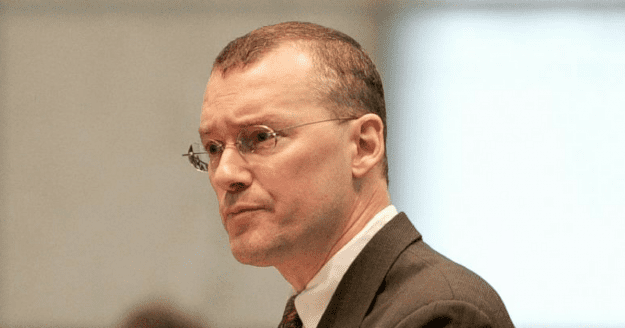David Buckel, a prominent LGBTQ rights lawyer was found dead on Saturday in Brooklyn’s Prospect Park. The lawyer who was 60 years old, left a suicide note in a shopping cart nearby before setting himself on fire and burning to death. He also emailed the message to several media outlets including The New York Times.
In the letter, Buckel expressed how his death was a protest on the world’s use of fossil fuels and its effect on the environment.
Parts of the letter say:
My name is David Buckel and I just killed myself by fire as a protest suicide. I apologize to you for the mess.
Pollution ravages our planet, oozing inhabitability via air, soil, water and weather.
Most humans on the planet now breathe air made unhealthy by fossil fuels, and many die early deaths as a result — my early death by fossil fuel reflects what we are doing to ourselves.
A life of privilege requires actions to balance the harm caused, and the greater the privilege, the greater the responsibility.
For if one does not leave behind a world better for having lived in it, all that remains are selfish ends, sometimes wrapped in family or nation.
My early death by fossil fuel reflects what we are doing to ourselves. A lifetime of service may best be preserved by giving a life.
Buckel was a key attorney in the Brandon v. County of Richardson case where he argued for Brandon Teena, a transgender man who was murdered in Falls City, Nebraska. The case found a Nebraska county sheriff responsible for failing to protect Teena. Brandon Teena earned Hilary Swank an Oscar in the 1999 film Boys Don’t Cry.
Buckel’s work via Lambda Legal also included great strides in the same-sex marriage journey.
When he left Lambda Legal, he became very involved with environmental causes, which is demonstrated in his passionate, life-ending protest against fossil fuels.
Lambda Legal shared a statement on their website about Buckel’s death.
Attorney Susan Sommer, who worked closely with Buckel, shared with The New York Times:
He deserves tremendous thanks for recognizing this was in many ways at the heart of what it meant to be gay for many Americans and making it a priority. I learned so much from him about the emotional center of what it means for a gay person not to be able to have all the protections for the person they love and that it’s worth fighting for.
h/t: The New York Times, Lambda Legal



